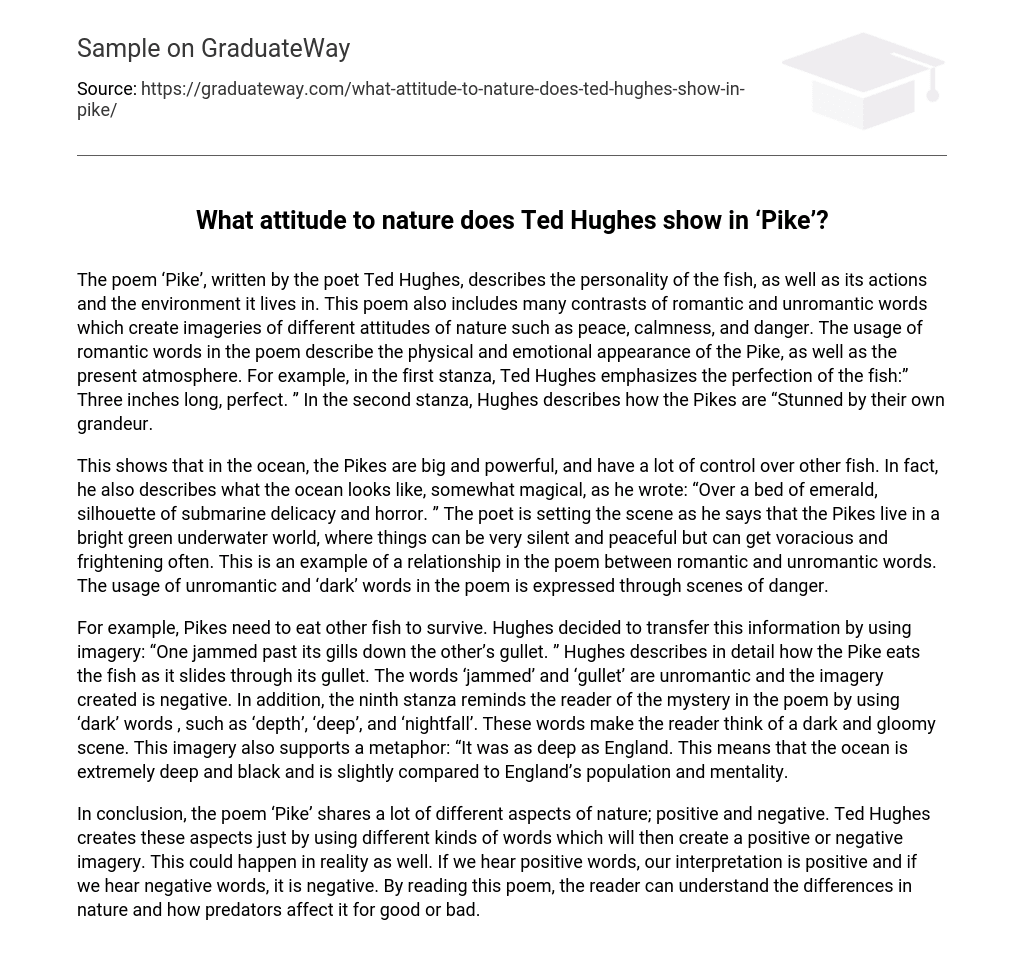The poem ‘Pike’, written by the poet Ted Hughes, describes the personality of the fish, as well as its actions and the environment it lives in. This poem also includes many contrasts of romantic and unromantic words which create imageries of different attitudes of nature such as peace, calmness, and danger. The usage of romantic words in the poem describe the physical and emotional appearance of the Pike, as well as the present atmosphere. For example, in the first stanza, Ted Hughes emphasizes the perfection of the fish:” Three inches long, perfect. ” In the second stanza, Hughes describes how the Pikes are “Stunned by their own grandeur.
This shows that in the ocean, the Pikes are big and powerful, and have a lot of control over other fish. In fact, he also describes what the ocean looks like, somewhat magical, as he wrote: “Over a bed of emerald, silhouette of submarine delicacy and horror. ” The poet is setting the scene as he says that the Pikes live in a bright green underwater world, where things can be very silent and peaceful but can get voracious and frightening often. This is an example of a relationship in the poem between romantic and unromantic words. The usage of unromantic and ‘dark’ words in the poem is expressed through scenes of danger.
For example, Pikes need to eat other fish to survive. Hughes decided to transfer this information by using imagery: “One jammed past its gills down the other’s gullet. ” Hughes describes in detail how the Pike eats the fish as it slides through its gullet. The words ‘jammed’ and ‘gullet’ are unromantic and the imagery created is negative. In addition, the ninth stanza reminds the reader of the mystery in the poem by using ‘dark’ words , such as ‘depth’, ‘deep’, and ‘nightfall’. These words make the reader think of a dark and gloomy scene. This imagery also supports a metaphor: “It was as deep as England. This means that the ocean is extremely deep and black and is slightly compared to England’s population and mentality.
In conclusion, the poem ‘Pike’ shares a lot of different aspects of nature; positive and negative. Ted Hughes creates these aspects just by using different kinds of words which will then create a positive or negative imagery. This could happen in reality as well. If we hear positive words, our interpretation is positive and if we hear negative words, it is negative. By reading this poem, the reader can understand the differences in nature and how predators affect it for good or bad.





